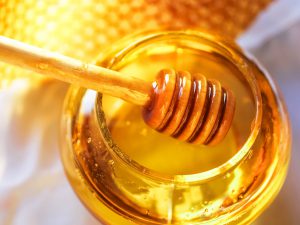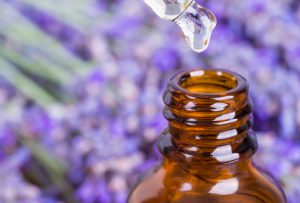Bridging Tradition and Science

When it comes to skincare, the quest for clear, radiant, and healthy skin is a journey we all embark on. While there are countless products lining the shelves of beauty stores, sometimes the best solutions can be found in the purest, most natural forms. Enter natural antiseptics – these powerful, nature-derived ingredients are not only effective at cleansing and protecting your skin but also gentle and soothing. In this blog, we’ll explore some of the best natural antiseptics for your skin.
1. Tea Tree Oil: The Skin Savior
Derived from the leaves of the tea tree (Melaleuca alternifolia), tea tree oil has long been celebrated for its potent antiseptic properties. It’s a versatile essential oil known for its ability to combat acne, soothe skin irritations, and promote overall skin health.
Tea tree oil’s antimicrobial properties help it fend off bacteria, fungi, and even some viruses, making it a natural choice for treating acne and blemishes. Remember to dilute it with a carrier oil like jojoba or coconut oil before applying it directly to your skin, as it can be quite potent.
2. Aloe Vera: Nature’s Soothing Balm
Aloe vera is a true skincare gem, with a history of use dating back centuries. The gel extracted from the aloe plant’s leaves is a natural antiseptic and anti-inflammatory agent. It’s a go-to remedy for soothing sunburn, minor cuts, and skin irritations.
This wonder plant promotes skin healing and reduces redness and inflammation, making it perfect for those with sensitive or easily irritated skin. You can either use fresh aloe vera gel straight from the plant or opt for a reputable aloe vera gel product.
3. Manuka Honey: A Sweet Solution
Manuka honey, native to New Zealand, is renowned for its exceptional antibacterial and healing properties. It’s produced by bees that pollinate the manuka bush (Leptospermum scoparium), and its unique composition sets it apart from regular honey.
Manuka honey is a powerful antiseptic that can help treat various skin conditions, including acne, eczema, and minor wounds. Its high sugar content creates an environment that inhibits the growth of bacteria. When applied topically, it provides moisture to the skin while aiding in the natural healing process.
4. Witch Hazel: The Gentle Toner
Witch hazel, derived from the bark and leaves of the witch hazel shrub (Hamamelis virginiana), has been a beloved natural skincare remedy for generations. It’s valued for its astringent and antiseptic properties.
Witch hazel can help tighten and tone your skin while gently cleansing it. It’s particularly effective in reducing inflammation, redness, and irritation associated with conditions like acne and eczema. Look for alcohol-free witch hazel products to avoid excessive drying of the skin.
5. Lavender Oil: Calm and Cleanse
Lavender essential oil is not just a delightful fragrance; it’s also a potent natural antiseptic with calming properties. It’s well-known for its ability to soothe the mind and body, but it’s equally effective at soothing the skin.
Lavender oil can be used to cleanse wounds, reduce itching from insect bites, and alleviate minor burns. Its gentle antiseptic properties make it suitable for various skin types, including sensitive skin. Dilute a few drops in a carrier oil and apply it to the affected area for relief.

Incorporating Natural Antiseptics into Your Skincare Routine
Now that we’ve explored some of the best natural antiseptics for your skin, it’s important to remember that these remedies are most effective when integrated into a consistent skincare routine. Here are some tips for incorporating natural antiseptics:
- Patch Test: Before applying any new product or ingredient to your skin, perform a patch test to ensure you don’t have an adverse reaction.
- Dilution: When using essential oils or concentrated products, always dilute them with a carrier oil to avoid skin irritation.
- Consistency: Incorporate natural antiseptics into your daily or weekly skincare routine, depending on your skin’s needs.
- Sun Protection: Some natural antiseptics, like citrus oils or certain herbal extracts, can make your skin more sensitive to the sun. Be sure to apply sunscreen when using these ingredients during the day.
- Consultation: If you have a pre-existing skin condition or are unsure about using natural antiseptics, consult with a dermatologist or skincare professional.
In conclusion, the world of skincare offers a plethora of natural antiseptics that can promote skin health and healing. Whether you’re dealing with acne, minor wounds, or skin irritations, these natural remedies can be a gentle and effective addition to your skincare arsenal. Nature’s power to cleanse and heal is a beauty secret that’s been passed down through generations, and it’s time to embrace it for the radiant, healthy skin you deserve.




